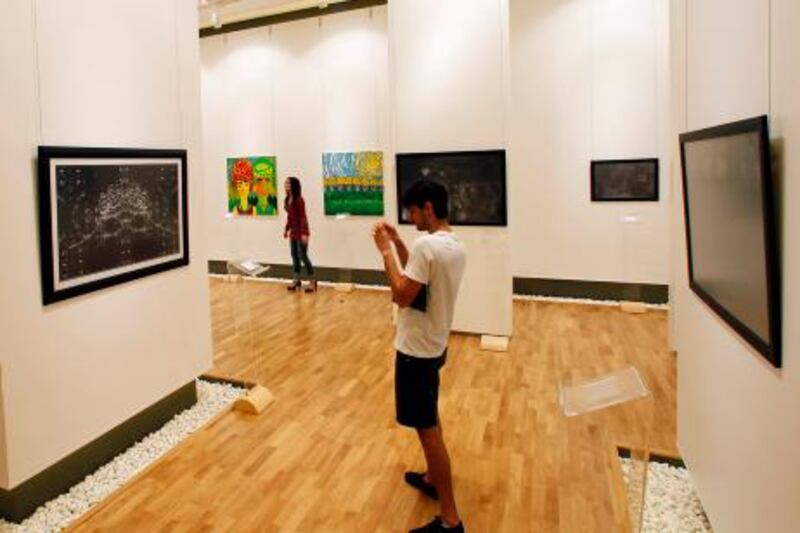Finally, the proof that all culture vultures have been waiting for. A new study has found that people who go to museums and concerts, enjoy films or the theatre, genuinely are happier, healthier and less anxious. Clearly, none of the participants had recently watched Pirates of the Caribbean: On Stranger Tides.
The study, led by Koenraad Cuypers, of the Norwegian University of Science and Technology, was published in the British Medical Association's Journal of Epidemiology and Community Health last week. There was a serious point behind it: to assess whether health policies that use cultural participation (such as outings to galleries and museums) as medical therapy in various countries actually work. So more than 50,000 men and women in Norway's Nord-Trodelag county were asked about their consumption of culture and how it affected their wellbeing. For a remote area of Norway that only has one professional theatre, the results were surprisingly clear: "especially in men, attending receptive, rather than creative, cultural activities was more strongly associated with all health-related outcomes".
It's not the first study published this year to suggest that, sometimes, a dose of culture can be the best medicine. In January, researchers at McGill University in Montreal found that listening to music makes the brain release the mood enhancing "reward" chemical dopamine - present when we enjoy a good meal. Remarkably, the participants in this study weren't just responding to a hand-picked playlist of their favourite music, but a range of preselected tunes that included everything from techno to folk to classical. It may be an unwelcome conclusion to reach, then, but perhaps boy bands really are good for you.
Think I'm joking? Another British study a month later - from a slightly less academic institution (it was conducted by an orange-juice manufacturer) suggested that Greatest Day by Take That was the song most likely to get you up in the morning in a good mood.
But sometimes there are parts of your mind even Take That cannot reach. In which case, some say the prescription should be - obviously - a grindingly scary horror movie. Fear, in this sense, can be a force for good, providing a life-enhancing high without any of the peril. The self-styled "movie doctor" Gary Solomon - a real doctor - has written no fewer than three books on what he calls "cinematherapy", directing those who are struggling with obsessions towards the demonic Hellraiser. "It offers one more way to see that life cannot take a healthy course if all you do is search for that next 'ultimate high'," he wrote in his book The Motion Picture Prescription.
Still, breaking out in cold sweats at the multiplex isn't for everybody. As Cuypers's study suggests, the rarefied air of a gallery or a museum can also make us happy - probably because, most of the time, they're engaging, inspiring places. Even if Tracey Emin's Turner Prize-nominated unmade bed wasn't to everybody's personal taste, the fact is, it provoked a cerebral reaction.
And the idea that the thought processes triggered by such encounters with modern art do have a positive effect is backed up by a 2009 study completed by Harris Interactive. It found that people were happier when spending money on experiences such as a trip to a prestigious museum or gallery rather than making material purchases - not least because they provide positive memories that can be revisited over and over again.
And talking about Emin or a cutting-edge indie band also makes us feel pretty cool, let's be honest. One word of warning, though: not everyone will get the same response from an artwork or a gig. A 2009 study from researchers at Goldsmith's College, University of London, was unequivocal that listening to music can make you feel happy and contented.
But the findings also revealed a dark side: a quick blast of Lady Gaga on the way to work can easily fool somebody enjoying the dopamine high induced by Bad Romance into thinking everybody else feels just as happy. Then they get into work, somebody moans about their commute, and the sad realisation that the world isn't such a uniformly cheerful place after all can cause a huge dip in mood.
And if you're burdened with that particular affliction, well, may I suggest a quick dose of Bobby McFerrin? Don't Worry, Be Happy. Only to be taken sparingly, mind.






